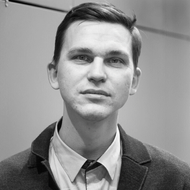Scientists Present New Solution to Imbalanced Learning Problem

Specialists at the HSE Faculty of Computer Science and Sber AI Lab have developed a geometric oversampling technique known as Simplicial SMOTE. Tests on various datasets have shown that it significantly improves classification performance. This technique is particularly valuable in scenarios where rare cases are crucial, such as fraud detection or the diagnosis of rare diseases. The study's results are available on ArXiv.org, an open-access archive, and will be presented at the International Conference on Knowledge Discovery and Data Mining (KDD) in summer 2025 in Toronto, Canada.
The problem of imbalanced learning is becoming increasingly relevant across various fields, including banking and medicine. Conventional methods, such as random oversampling, often generate low-quality samples or fail to accurately model rare class data.
Simplicial SMOTE (Synthetic Minority Oversampling Technique), a novel solution proposed by scientists from HSE University and Sber AI Lab, addresses these issues by enabling more accurate modelling of complex topological data structures and improving classifier performance on imbalanced datasets.
It generates new examples of a rare class by leveraging information from multiple closed instances ('simplex'), rather than just two close points, as in the original SMOTE and its well-known modifications. This facilitates a better understanding of the data and advances performance. The technique improves training on imbalanced data, where one class (eg, normal transactions) has many examples, while another class (eg, fraud) has few.
Researchers have experimentally shown on a large number of test datasets that the proposed approach achieves significantly better performance metrics, such as the F1 Score and Matthews Correlation Coefficient, for both the basic SMOTE and its modifications. In particular, an improvement was observed in gradient boosting, a classifier commonly used in practice.
'Our technique is particularly effective for tasks involving imbalanced data, where the rare class holds greater significance. Banks can use Simplicial SMOTE to detect fraud more effectively, and medical centres can apply it to diagnose rare diseases,' says Andrey Savchenko, co-author of the article and Leading Research Fellow at the Laboratories for Theoretical Modelling in AI of the HSE AI and Digital Science Institute.
The new technique can be integrated into existing oversampling algorithms (such as Borderline-SMOTE, Safe-level-SMOTE, and ADASYN), enabling better accuracy without significantly increasing computational complexity. According to the researchers, the developed approach could contribute to the creation of more accurate and reliable machine learning models, thereby improving the quality of analytics.
The study was conducted with support from the HSE Basic Research Programme.
See also:
Scientists Propose Novel Theory on Origin of Genetic Code
Alan Herbert, Scientific Supervisor of the HSE International Laboratory of Bioinformatics, has put forward a new explanation for one of biology's enduring mysteries—the origin of the genetic code. According to his publication in Biology Letters, the contemporary genetic code may have originated from self-organising molecular complexes known as ‘tinkers.’ The author presents this novel hypothesis based on an analysis of secondary DNA structures using the AlphaFold 3 neural network.
See, Feel, and Understand: HSE Researchers to Explore Mechanisms of Movement Perception in Autism
Scientists at the HSE Cognitive Health and Intelligence Centre have won a grant from the Russian Science Foundation (RSF) to investigate the mechanisms of visual motion perception in autism. The researchers will design an experimental paradigm to explore the relationship between visual attention and motor skills in individuals with autism spectrum disorders. This will provide insight into the neurocognitive mechanisms underlying social interaction difficulties in autism and help identify strategies for compensating for them.
Scholars Disprove Existence of ‘Crisis of Trust’ in Science
An international team of researchers, including specialists from HSE University, has conducted a large-scale survey in 68 countries on the subject of trust in science. In most countries, people continue to highly value the work of scientists and want to see them take a more active role in public life. The results have been published in Nature Human Behaviour.
Education System Reforms Led to Better University Performance, HSE Researchers Find
A study by researchers at the HSE Faculty of Economic Sciences and the Institute of Education have found that the number of academic papers published by research universities in international journals has tripled in the past eight years. Additionally, universities have developed more distinct specialisations. Thus, sectoral universities specialising in medical, pedagogical, technical, and other fields are twice as likely to admit students to target places. The study has been published in Vocation, Technology & Education.
Scientists Record GRB 221009A, the Brightest Gamma-Ray Burst in Cosmic History
A team of scientists from 17 countries, including physicists from HSE University, analysed early photometric and spectroscopic data of GRB 221009A, the brightest gamma-ray burst ever recorded. The data was obtained at the Sayan Observatory one hour and 15 minutes after the emission was registered. The researchers detected photons with an energy of 18 teraelectronvolts (TeV). Theoretically, such high-energy particles should not reach Earth, but data analysis has confirmed that they can. The results challenge the theory of gamma radiation absorption and may point to unknown physical processes. The study has been published in Astronomy & Astrophysics.
Chemists Simplify Synthesis of Drugs Involving Amide Groups
Chemists from HSE University and the Nesmeyanov Institute of Organoelement Compounds of the Russian Academy of Sciences (INEOS RAS) have developed a new method for synthesising amides, essential compounds in drug production. Using a ruthenium catalyst and carbon monoxide under precisely controlled reaction conditions, they successfully obtained the target product without by-products or complex purification steps. The method has already been tested for synthesising a key component of Vorinostat, a drug used to treat T-cell lymphoma. This approach could lower the cost of the drug by orders of magnitude. The paper has been published in the Journal of Catalysis. The study was supported by the Russian Science Foundation.
Scientists Examine Neurobiology of Pragmatic Reasoning
An international team including scientists from HSE University has investigated the brain's ability to comprehend hidden meanings in spoken messages. Using fMRI, the researchers found that unambiguous meanings activate brain regions involved in decision-making, whereas processing complex and ambiguous utterances engages regions responsible for analysing context and the speaker's intentions. The more complex the task, the greater the interaction between these regions, enabling the brain to decipher the meaning. The study has been published in NeuroImage.
‘HSE’s Industry Ties Are Invaluable’
Pan Zhengwu has spent the last seven years at HSE University—first as a student of the Bachelor’s in Software Engineering and now in the Master’s in System and Software Engineering at the Faculty of Computer Science. In addition to his busy academic schedule, he works as a mobile software engineer at Yandex and is an avid urban photographer. In his interview with the HSE News Service, Zhengwu talks about the challenges he faced when he first moved to Russia, shares his thoughts on ‘collaborating’ with AI, and reveals one of his top spots for taking photos in Moscow.
Hi-Tech Grief: HSE Researchers Explore the Pros and Cons of Digital Commemoration
Researchers at HSE University in Nizhny Novgorod have explored how technological advancements are transforming the ways in which people preserve the memory of the deceased and significant events. Digital technologies enable the creation of virtual memorials, the preservation of personal stories and belongings of the deceased, interaction with their digital footprint, and even the development of interactive avatars based on their online activity. However, these technologies not only evoke nostalgia and provide a sense of relief but can also heighten anxiety and fear, and delay the process of accepting loss. The study has been published in Chelovek (The Human Being).
Scientists Find Out Why Aphasia Patients Lose the Ability to Talk about the Past and Future
An international team of researchers, including scientists from the HSE Centre for Language and Brain, has identified the causes of impairments in expressing grammatical tense in people with aphasia. They discovered that individuals with speech disorders struggle with both forming the concept of time and selecting the correct verb tense. However, which of these processes proves more challenging depends on the speaker's language. The findings have been published in the journal Aphasiology.



